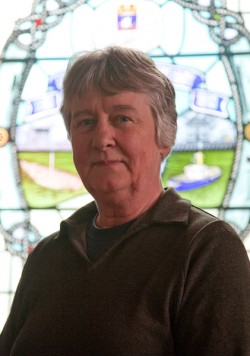Council puts school closures on back burner

Consultations on the future of five secondary school departments are to be postponed, it was confirmed at a council meeting today.
Councillors backed a recommendation by the Education and Families Committee to put the consultations on secondary departments at Mid Yell, Whalsay, Baltasound, Aith and Sandwick schools on hold till at least 2017, when the children’s services department will come forward with a revised timeline.
But the committee chairwoman, Vaila Wishart, warned a packed council chamber that, depending on the financial outlook for the council, the closure programme may have to be revisited before that.

An amendment by councillor Jonathan Wills that would have brought three of the consultations back on stream was heavily defeated. Dr Wills had also proposed scrapping consultations on Whalsay and Mid Yell as the closure of these schools would have been unworkable. He wanted to start consultation over the future of junior high schools in Baltasound, Aith and Sandwick.
Only councillors Drew Ratter and Allison Duncan backed Dr Wills’ amendment with Allan Wishart abstaining – he had lodged a protest that the motion had not been distributed among councillors, a copy having only gone to the council clerk.
Sixteen councillors voted in favour of the education and families committee motion, including North Isles members Gary Cleaver, Robert Henderson and Steven Coutts, who could have potentially headed off consultations on Whalsay and Mid Yell by voting for the amendment. Alastair Cooper and Frank Robertson were absent from the meeting.
Dr Wills warned that putting off the consultations would just lead to further speculation and worry about the future of the secondary departments. He had made the case for closures on financial grounds – the council would be set to make net savings of £2 million per annum if Aith, Sandwick and Baltasound are scrapped – about the same as what the council expects to make from the Total gas plant.
Prior to the meeting he issued a statement saying: “I see no reason to postpone a decision and prolong the anxiety and strife that school closure proposals always, inevitably, cause. The sooner the pupils, parents and staff know where they stand, the better. Once decisions are made, we can then implement them as and when the new Anderson High School is ready to receive pupils from the schools affected.”
But Ms Wishart and education vice-chairman George Smith argued against forging ahead with consultations when the public mood had been so strongly against the proposed closure of primary schools that had been the subject of a previous round of consultation.
Instead, the council will buy time to make the case again, this time trying to persuade the public on the educational benefits of rearranging the “school estate” rather than focusing on cost, as Dr Wills had done once more at today’s meeting. According to Dr Wills the educational benefits of rationalising the school estate had already been thoroughly debated and made clear.

Ms Wishart said that a two-year delay would give the council time to complete the flagship Anderson High School and hopefully educational improvements ushered in by the Curriculum for Excellence would emerge.
A report by Ms Wishart for the council says: “Children’s services considers that at this time, no decision would be taken to make a change to the secondary school estate in Shetland in order to progress the strategy at a time when the affected communities in Shetland may be more receptive to considering change: when the Shetland Learning Partnership is up and running, and when the new Anderson High School has been built.”
Mr Ratter said that it was now time to move the debate away from the obsession with “bricks and mortar” and onto focusing on the best educational outcome for children.
Councillors heard that while the books had been balanced for 2015/16. A further two per cent cut in schools’ budgets will be required in subsequent years.
Additionally, the level of future support coming from the Scottish government is unknown and could be subject to severe cuts.
Consultations on the closure of outlying schools had cost the council more than £600,000, officials said, but this figure was dwarfed by around £6 million already spent on faltering attempts to replace the creaking Anderson High School.
After the meeting, Dr Wills said that the outcome had been entirely predictable. “What I find striking and what the public will find amazing is that the three North Isles members rejected the opportunity to throw out the closure of Mid Yell and Symbister,” he added. “The public might not forget that come election time”.
Councillors also agreed to waive halls of residence fees and transport fees for S3 pupils, from June, “in order to maintain the integrity of the Strategy for Secondary Education and to facilitate the Shetland Learning Partnership.”








NO COMMENTS
Add Your Comment